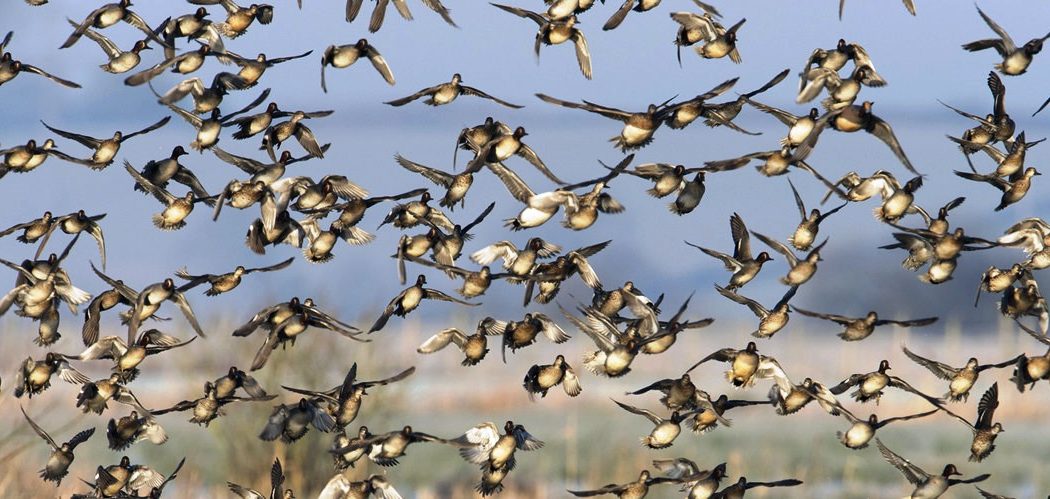The people and wildlife of Colorado, Kansas and Texas are the latest beneficiaries of a long-standing partnership between Phillips 66 and Ducks Unlimited (DU).
The multinational energy company headquartered in Houston recently contributed $500,000 to DU, the North American non-profit leader in wetlands restoration for multiple wetland restoration projects in the three states.
The latest suite of projects will enhance and restore wetlands on Byron Walker Wildlife Area and Kingman State Fishing Lake in Kansas, Jackson State Park in Colorado and the Arkansas and San Bernard National Wildlife Refuges in Texas.
“Environmental stewardship is a commitment essential to Phillips 66’s vision of providing energy and improving lives,” said Sonya Reed, senior vice president, Human Resources and Corporate Communications for Phillips 66. “We are proud to continue our relationship with Ducks Unlimited as they further their mission to restore wetlands.”
In Kansas, DU is working with the Kansas Department of Wildlife, Parks and Tourism to restore several wetlands on public lands near Wichita.
The Phillips 66-supported projects in Texas will restore the hurricane-damaged Myrtle Foester Whitmire Unit on Arkansas National Wildlife Refuge, and rebuild 2.25 miles of shoreline protection on the north shore of the Gulf Intracoastal Waterway to protect marshes on San Bernard National Wildlife Refuge.
In Colorado, Ducks Unlimited will install infrastructure on Jackson State Park to help managers more effectively use limited water supplies to grow the plants wildlife needs for food and cover. This park is one of the most frequented public areas in northeastern Colorado.
“Phillips 66 has been a strong partner in conservation for many years, and they have recently elevated their contributions to help us do more for wetlands, waterfowl and people in several states,” DU Director of Development Matt Bunn said.
“In just the last five years, Phillips 66 has contributed $1.5 million to support important wetland restoration projects in Texas, Louisiana, Illinois, Kansas and Colorado,” he added.
Ducks Unlimited Inc. is the world’s largest nonprofit organization dedicated to conserving North America’s continually disappearing waterfowl habitats. Established in 1937, Ducks Unlimited has conserved more than 14.5 million acres, funded by contributions from over a million supporters across the continent.
Guided by science and dedicated to program efficiency, DU’s mission is to restore wetlands sufficiently to refill the skies with waterfowl today, tomorrow and forever.
While Phillips 66 is a fossil fuel-based company, they have been making some small inroads into renewable energy. A year ago, on November 1, 2018, they partnered with Renewable Energy Group, Inc. to build a large-scale renewable diesel plant on the site of an existing Phillips 66 oil refinery in Washington state.
The plant would use REG’s proprietary BioSynfining® technology for the production of renewable diesel fuel. Planned feedstocks include a mix of waste fats, oils and greases, including regionally-sourced vegetable oils, animal fats and used cooking oil.
“REG is excited to be working with a leading refiner, Phillips 66, on a project that has the potential to significantly expand biofuel production in Washington state and provide low carbon fuel markets with products that are in significant demand on the West Coast,” said Randy Howard, CEO of REG. “We look forward to working with state and local stakeholders to facilitate development of this important project and increase the supply of low carbon fuels in the region.”
“The proposed facility’s strategic location in Washington state would enable us to move renewable fuels more efficiently to support West Coast and international fuel market demand,” said Brian Mandell, senior vice president, Marketing and Commercial, Phillips 66. “We continually look for opportunities to provide our customers with a reliable source of innovative renewable fuels.”
Meanwhile, these contributions to Ducks Unlimited will sequester some of the carbon from the other 99.99% of their business. It won’t be much in the grand scheme of things, carbon-wise, but it will make a huge difference to the wildlife living in the places these funds will help restore.
Photo courtesy of Ducks Unlimited.

